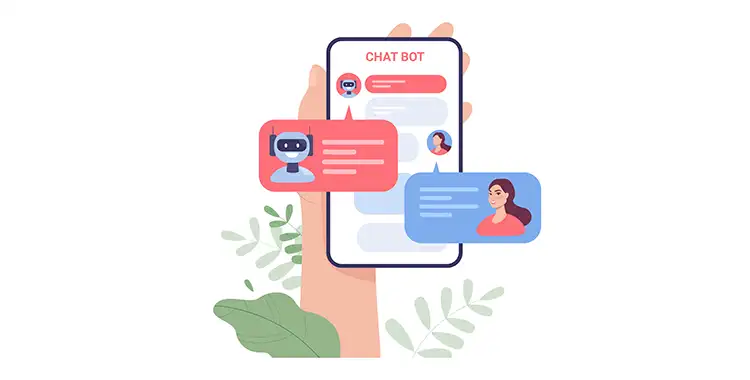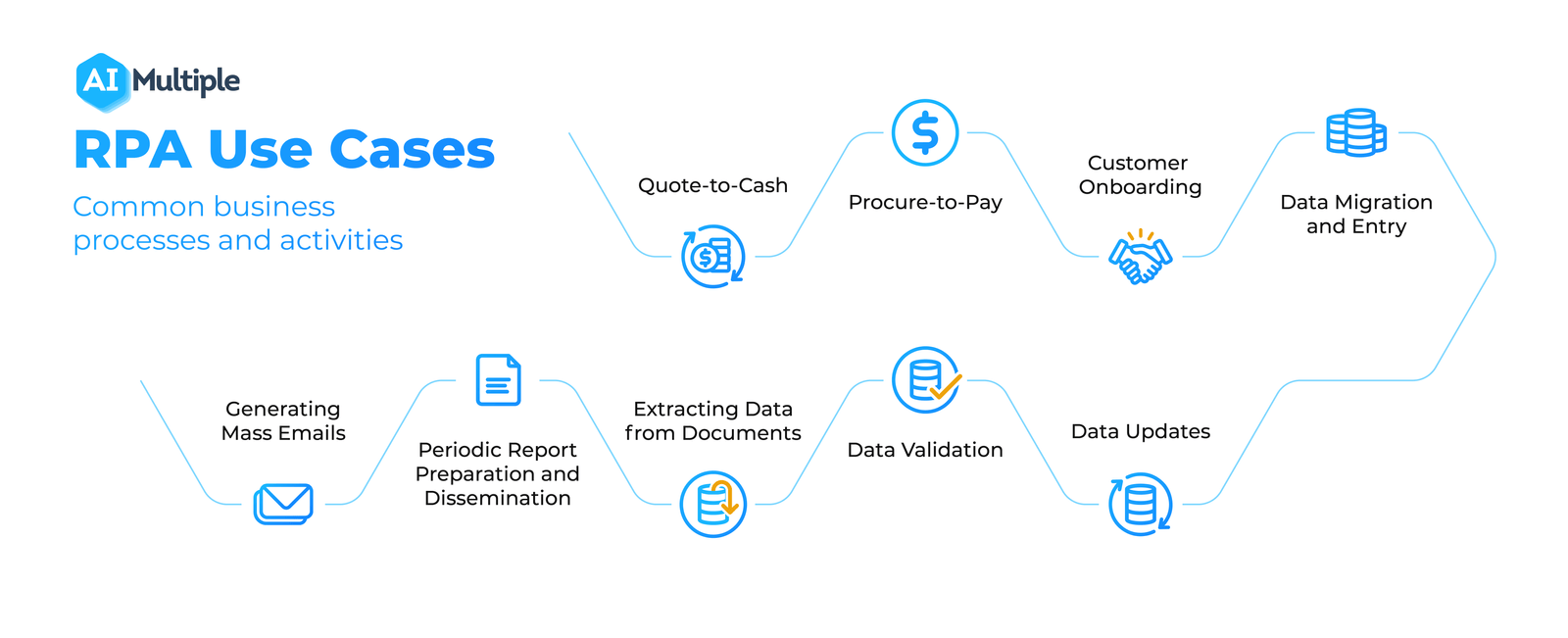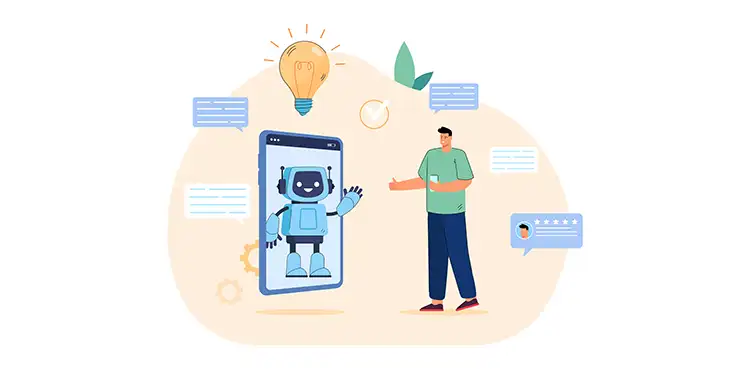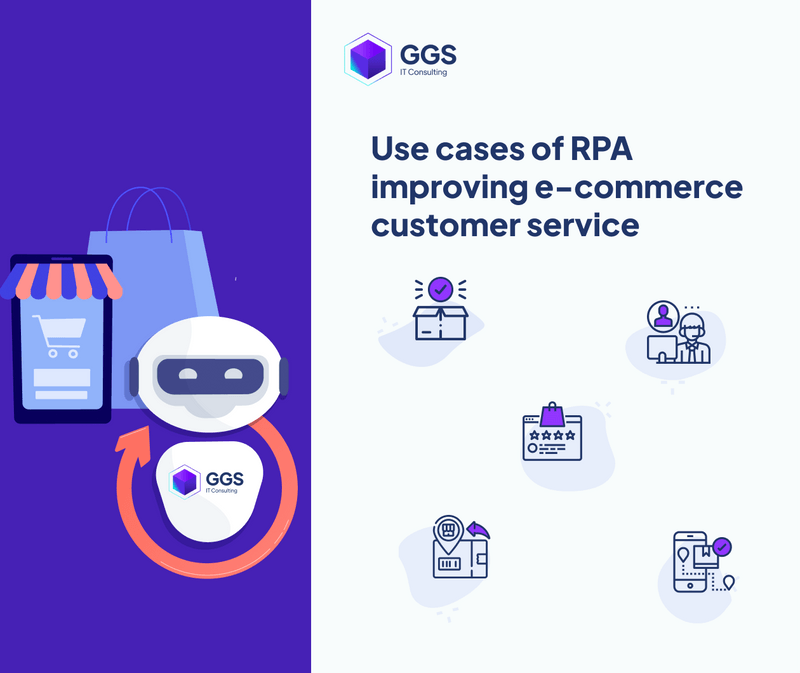
In today’s fast-paced and technology-driven world, businesses are constantly seeking ways to improve their customer support and streamline their processes. One of the most effective ways to achieve this is by integrating Artificial Intelligence (AI) and Robotic Process Automation (RPA) into customer support systems. By harnessing the power of AI and RPA, companies can revolutionize their customer support operations and provide a seamless and efficient experience for their customers.
AI and RPA integration in customer support brings a multitude of benefits. With AI, businesses can leverage advanced algorithms and machine learning capabilities to automate repetitive tasks, such as answering frequently asked questions or routing customer inquiries to the right department. This not only saves time and resources but also ensures consistent and accurate responses. Additionally, AI-powered chatbots can provide instant and personalized support, enhancing customer satisfaction and reducing wait times. On the other hand, RPA enables businesses to automate manual and time-consuming processes, such as data entry and order processing. By automating these tasks, companies can free up their support staff to focus on more complex and value-added activities, resulting in improved productivity and faster response times.
By seamlessly integrating AI and RPA into their customer support systems, businesses can provide efficient and personalized support, leading to increased customer satisfaction and loyalty. Moreover, the automation of repetitive tasks and manual processes allows companies to optimize their resources and allocate them to more strategic initiatives. As technology continues to advance, the possibilities for streamlining customer support with AI and RPA integration are endless. So, whether you’re a small startup or a large enterprise, embracing these innovative technologies can give your customer support a competitive edge and propel your business towards success.
Streamlining Customer Support with AI and RPA Integration
Integrating artificial intelligence (AI) and robotic process automation (RPA) can revolutionize customer support. By harnessing AI algorithms, customer queries can be analyzed and categorized, allowing for faster response times and personalized solutions. RPA can automate repetitive tasks, freeing up support agents to focus on more complex issues. The synergy of AI and RPA creates a streamlined support system that enhances customer satisfaction and improves efficiency. Embracing this integration is key to staying ahead in today’s competitive market.

Streamlining Customer Support with AI and RPA Integration
In today’s fast-paced business environment, providing efficient and effective customer support is crucial for the success of any organization. Streamlining customer support processes is a top priority for companies looking to enhance customer satisfaction and loyalty. One of the most promising approaches to achieving this goal is through the integration of Artificial Intelligence (AI) and Robotic Process Automation (RPA). By combining these technologies, businesses can automate repetitive tasks, improve response times, and deliver personalized support to customers.
The Power of AI in Customer Support
AI has revolutionized the way businesses interact with their customers. With AI-powered chatbots and virtual assistants, organizations can provide round-the-clock support, instantly respond to customer queries, and offer personalized recommendations. These intelligent systems are capable of understanding natural language, analyzing customer data, and providing accurate and relevant solutions. By automating routine tasks, AI frees up human agents to focus on more complex and strategic customer interactions, leading to improved efficiency and increased customer satisfaction.
AI can also help businesses gain valuable insights into customer behavior and preferences. By analyzing large amounts of data, AI algorithms can identify patterns, trends, and customer sentiments, enabling organizations to tailor their support services to individual needs. This level of personalization not only enhances the customer experience but also strengthens customer loyalty and drives repeat business.
The Role of RPA in Customer Support
Robotic Process Automation (RPA) is another powerful tool in streamlining customer support processes. RPA involves the use of software robots or “bots” to automate repetitive, rule-based tasks. In the context of customer support, RPA can automate activities such as data entry, ticket routing, and order processing. By eliminating manual errors and reducing processing times, RPA improves the overall efficiency and accuracy of customer support operations.
RPA also enables seamless integration between different systems and applications, allowing for the smooth flow of information across departments. This integration eliminates the need for manual data transfer and ensures that customer support agents have access to real-time, up-to-date information. With RPA, businesses can achieve faster response times, resolve customer issues more effectively, and provide a consistent and seamless support experience.
Benefits of AI and RPA Integration in Customer Support
The integration of AI and RPA in customer support offers several key benefits for businesses:
- Improved Efficiency: By automating repetitive tasks, AI and RPA reduce the time and effort required to handle customer queries, allowing support agents to focus on more complex and high-value interactions.
- Enhanced Customer Experience: AI-powered chatbots and virtual assistants provide instant and personalized support, ensuring that customers receive timely and accurate solutions to their problems.
- Increased Scalability: AI and RPA enable businesses to handle a large volume of customer queries simultaneously, ensuring that support services can scale up or down based on demand.
- Cost Savings: By automating manual tasks, organizations can reduce labor costs and allocate resources more efficiently, resulting in significant cost savings.
- Data-Driven Insights: AI and RPA generate valuable insights into customer behavior and preferences, enabling businesses to make data-driven decisions and improve their support services.
Implementing AI and RPA Integration in Customer Support

Implementing AI and RPA integration in customer support requires careful planning and execution. Here are some key considerations:
- Identify Use Cases: Determine which customer support processes can benefit the most from AI and RPA automation. Start with tasks that are repetitive, rule-based, and time-consuming.
- Select the Right Technology: Choose AI and RPA solutions that align with your business goals and requirements. Consider factors such as ease of integration, scalability, and compatibility with existing systems.
- Train and Monitor AI Models: Train AI models using historical customer data to ensure accurate and relevant responses. Continuously monitor and update the models to improve performance over time.
- Collaborate Between AI and Human Agents: Foster collaboration between AI-powered systems and human agents to provide a seamless customer support experience. Define clear roles and responsibilities to ensure effective coordination.
- Measure and Optimize: Establish key performance indicators (KPIs) to measure the impact of AI and RPA integration on customer support. Monitor the metrics regularly and make adjustments as needed to optimize performance.
Streamlining Customer Support: AI and RPA vs. Traditional Methods
When comparing AI and RPA integration with traditional customer support methods, the advantages become evident. Traditional methods often rely on manual processes, leading to longer response times, human errors, and inconsistent support experiences. On the other hand, AI and RPA enable businesses to automate tasks, provide personalized support, and deliver faster resolutions. This not only enhances customer satisfaction but also improves operational efficiency and reduces costs.
The Future of Customer Support with AI and RPA
The integration of AI and RPA in customer support is an ongoing journey. As technology continues to advance, we can expect even greater innovations in this field. Chatbots and virtual assistants will become more sophisticated, capable of understanding complex queries and providing more accurate responses. AI algorithms will continue to learn and adapt, delivering increasingly personalized support experiences. RPA will become more intelligent, automating a wider range of tasks and seamlessly integrating with various systems. The future of customer support lies in the seamless integration of AI and RPA, empowering businesses to deliver exceptional support experiences and build lasting customer relationships.
Key Takeaways: Streamlining Customer Support with AI and RPA Integration
- AI and RPA integration can greatly improve customer support efficiency.
- Automating repetitive tasks with RPA frees up time for support agents to focus on complex issues.
- AI-powered chatbots can provide quick and accurate responses to customer queries.
- Implementing AI and RPA can lead to faster response times and improved customer satisfaction.
- Streamlining customer support with AI and RPA integration can help businesses save costs and increase productivity.
Frequently Asked Questions
Q: What is the benefit of integrating AI and RPA in customer support?
Integrating AI (Artificial Intelligence) and RPA (Robotic Process Automation) in customer support brings numerous benefits. Firstly, AI enables automated responses and real-time analysis of customer queries, leading to faster response times and improved customer satisfaction. RPA, on the other hand, automates repetitive tasks, reducing the workload on customer support agents and enabling them to focus on more complex issues. This integration ultimately streamlines the entire customer support process, enhancing efficiency and effectiveness.

Furthermore, AI and RPA integration can also lead to cost savings for businesses. By automating routine tasks and utilizing AI-powered chatbots, companies can handle a larger volume of customer queries without increasing their support team size. This not only reduces operational costs but also ensures consistent and prompt support for customers, resulting in higher customer loyalty and retention.
Q: How does AI assist in customer support?
AI plays a crucial role in customer support by providing intelligent automation and personalized responses. With AI-powered chatbots, businesses can offer 24/7 support to their customers, handling common queries and providing instant solutions. These chatbots can understand natural language and context, allowing them to engage in meaningful conversations and resolve customer issues effectively.
Additionally, AI enables sentiment analysis, which helps in understanding customer emotions and sentiments. By analyzing customer interactions and feedback, businesses can identify areas for improvement and take proactive measures to enhance their products or services. AI algorithms can also predict customer behavior and preferences, enabling personalized recommendations and targeted support, further enhancing the overall customer experience.
Q: How does RPA streamline customer support processes?
RPA streamlines customer support processes by automating repetitive and manual tasks. RPA software can be programmed to handle routine tasks such as data entry, ticket routing, and generating reports, freeing up customer support agents to focus on more complex issues that require human expertise. This automation not only improves efficiency but also reduces the chances of errors and ensures consistency in support delivery.
Moreover, RPA integration allows for seamless integration with existing systems and applications, enabling smooth data transfer and synchronization. This eliminates the need for manual data entry and reduces the risk of data discrepancies. By automating these backend processes, RPA helps customer support teams operate more effectively, resulting in faster response times and improved customer satisfaction.
Q: Are there any challenges in implementing AI and RPA in customer support?
While integrating AI and RPA in customer support offers numerous benefits, there can be some challenges in the implementation process. One challenge is the initial investment required to set up the necessary infrastructure and train the AI models. This may require a significant upfront cost, especially for smaller businesses.
Another challenge is ensuring the accuracy and reliability of AI-powered systems. AI algorithms need to be continuously trained and updated to adapt to changing customer needs and preferences. Additionally, there is a need for regular monitoring and quality assurance to ensure that the AI systems are providing accurate and relevant responses to customer queries.
Q: How can businesses ensure a smooth transition to AI and RPA integration in customer support?
To ensure a smooth transition to AI and RPA integration in customer support, businesses should follow a systematic approach. Firstly, it is essential to clearly define the objectives and goals of the integration. This helps in identifying the specific areas where AI and RPA can bring the most value and streamline processes.
Next, businesses should invest in robust training and support for their customer support agents. This includes providing training on new technologies, ensuring they understand how to leverage AI and RPA tools effectively. Ongoing communication and feedback loops with the support team are also crucial to address any challenges or concerns that may arise during the transition.
Lastly, businesses should continuously evaluate and optimize their AI and RPA systems. This involves monitoring performance metrics, collecting customer feedback, and making necessary adjustments to improve the accuracy and effectiveness of the integrated solutions. Regular updates and maintenance of the AI and RPA systems are essential to ensure they remain up-to-date and aligned with evolving customer needs.

Final Thoughts: Streamlining Customer Support with AI and RPA Integration
In today’s fast-paced and technology-driven world, providing efficient and effective customer support is crucial for businesses to thrive. The integration of Artificial Intelligence (AI) and Robotic Process Automation (RPA) has revolutionized the way customer support is handled, streamlining processes and improving the overall customer experience.
By harnessing the power of AI and RPA, businesses can automate repetitive tasks, analyze customer data, and provide personalized support, all while reducing costs and increasing productivity. AI-powered chatbots can handle basic inquiries and provide instant responses, freeing up human agents to focus on more complex issues. RPA can automate manual processes, such as data entry and ticket routing, minimizing human error and speeding up response times.
The combination of AI and RPA not only enhances efficiency but also enables businesses to gain valuable insights from customer interactions. By analyzing data patterns, businesses can identify trends, anticipate customer needs, and proactively address issues. This proactive approach not only improves customer satisfaction but also fosters loyalty and long-term relationships.
In conclusion, the integration of AI and RPA in customer support is a game-changer for businesses. It enables them to provide faster, more personalized, and efficient support, while also optimizing resources and reducing costs. By leveraging these technologies, businesses can stay ahead of the competition and deliver exceptional customer experiences. So, embrace the power of AI and RPA integration and revolutionize your customer support processes today!